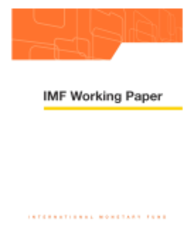
Japan's Distressed-Debt Market
Sizable risk capital from outside may be necessary to accelerate Japan's corporate restructuring to replace the stock of impaired bank loans. To attract risk capital, impaired loans must find market-clearing prices. However, the asymmetry in the bid-ask prices faced by banks and distressed-debt investors continues to stall efforts to create a liquid distressed-debt market. This paper asserts that the wedge between the prices faced by different participants is primarily a result of different valuation methods employed by banks and distressed-debt investors. On the one hand, banks do not recognize "maturity default" that results in banks rolling over impaired-loan accounts, effectively turning them into perpetual debt, which is expected to capture any upside potential for value. On the other hand, distressed-debt investors presently view their investments as equity stakes that require improved cash flows, unlike the buy-and-sell distressed-collateral market that existed in the mid-1990s. We suggest that bids from distressed-debt investors may not be as low as they are deemed by local banks and the asymmetry in prices may be reduced if banks value their claims as corporate equity.
Publication date: May 2004
ISBN: 9781451850918
$15.00
Add to Cart by clicking price of the language and format you'd like to purchase
Available Languages and Formats
| English |
Prices in red indicate formats that are not yet available but are forthcoming.
Topics covered in this book
This title contains information about the following subjects.
Click on a subject if you would like to see other titles with the same subjects.
Banks and Banking , Banks and Banking , Nonperforming loans , subperforming loans , distressed-debt investors , vulture funds , loans , restructuring , debt restructuring , interest , International Monetary Arrangements and Institutions , International Lending and Debt Problems , sub-performing loans , distressed de
Summary



